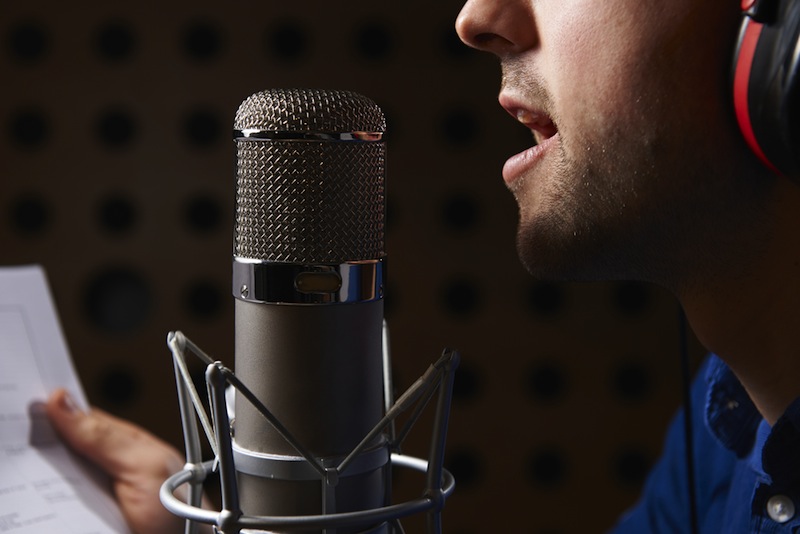Why Do People Hate the Sound of Their Own Voices?

Get the world’s most fascinating discoveries delivered straight to your inbox.
You are now subscribed
Your newsletter sign-up was successful
Want to add more newsletters?

Delivered Daily
Daily Newsletter
Sign up for the latest discoveries, groundbreaking research and fascinating breakthroughs that impact you and the wider world direct to your inbox.

Once a week
Life's Little Mysteries
Feed your curiosity with an exclusive mystery every week, solved with science and delivered direct to your inbox before it's seen anywhere else.

Once a week
How It Works
Sign up to our free science & technology newsletter for your weekly fix of fascinating articles, quick quizzes, amazing images, and more

Delivered daily
Space.com Newsletter
Breaking space news, the latest updates on rocket launches, skywatching events and more!

Once a month
Watch This Space
Sign up to our monthly entertainment newsletter to keep up with all our coverage of the latest sci-fi and space movies, tv shows, games and books.

Once a week
Night Sky This Week
Discover this week's must-see night sky events, moon phases, and stunning astrophotos. Sign up for our skywatching newsletter and explore the universe with us!
Join the club
Get full access to premium articles, exclusive features and a growing list of member rewards.
If you've ever listened to a recording of your voice and thought to yourself, "Do I really sound like that?!" you're hardly the only one. People hear themselves talk all the time, so why do they sometimes think that recordings of their voices sound so strange?
Here's the simple answer: what you hear when you speak is not the same as what others perceive, said Dr. Yale Cohen, director of the Hearing Sciences Center at the University of Pennsylvania's Perelman School of Medicine.
"The voice that you hear on a tape recorder is actually how your voice sounds," Cohen told Live Science. [5 Things a Person's Voice Can Tell You]
Three little bones called ossicles, located in the middle ear, are responsible for the discrepancy between what you think you sound like and how others hear you. The ossicles are key to one way people process noise: The eardrum vibrates against these bones, which transmit the vibrations to the cochlea, a spiral-shaped structure within the inner ear. The cochlea translates that vibrational energy (noise) from the outside world into electrical energy, which is how your brain cells communicate with each other.
Altering information outside your body into something your brain cells can "talk about" is called transduction, and it's responsible for generating what people call a "sound," Cohen said. Processing acoustic information via the vibration of the ossicles is called bone conduction, whereas processing acoustic information via the vibration of the air outside your ears is called air conduction. Whenever you speak, your brain compounds both bone and air conduction to make sense of the sound.
Your ossicles vibrate a little bit whenever you encounter an acoustic stimulus, but your own voice will always sound loud (because of how close your mouth is to your ears), so the ossicles vibrate more when you talk. This ends up muddling the sound, causing you to incorrectly perceive your voice as having a lower pitch. For this reason, you may find that a recording of your voice sounds much higher to you than what you're used to hearing when you speak.
But why does hearing yourself speak at a higher pitch illicit such a strong, and often negative, reaction? Because ultimately, people think they know what their own voices are supposed to sound like, Cohen said.
Get the world’s most fascinating discoveries delivered straight to your inbox.
Research suggests that people make real-time modifications to preserve the integrity of their voices. For instance, Cohen said, people who listen to themselves speaking into a microphone where the pitch has been altered will subconsciously change the way they talk, to counteract the adjustments. This fundamental understanding of what people think their voice sounds like is why they balk when they hear themselves sounding so different, he added.
"Imagine you didn't have a mirror for six months and you had a perception of what you looked like. Meanwhile, you start eating lots of food and you gain lots of weight. If you [suddenly looked in a mirror], you'd be shocked," Cohen said. [15 Weird Things Humans Do Every Day, and Why]
While people generally have a good understanding of how they should sound, the pitch of their voices can be dynamic. Based on the information around them, people tend to make slight changes in how they speak all the time. Research suggests that social variables, such as perceived dominance, can cause a person to make pitch adjustments, Cohen said.
Other aspects of your speech can change, too. Accents can be trained away and vocal coaches can work to slow down speedy talkers.
But the one thing about your voice that is unlikely to change is its cadence, or the rhythm with which you speak. Your cadence is probably learned, a product of your physical environment and upbringing, and it's typically very difficult to manipulate, Cohen said.
And while it may be jarring for most people to hear the way their voice sounds on a recording, if you're someone who has to hear your recorded voice often (such as a musician or a radio personality), Cohen said you might eventually become habituated to the pitch differences. The recording will still sound different, but the reaction might not be as strong.
In general, the brain does a remarkable job of filtering, processing and interpreting sound, Cohen said.
Think about listening to a live band: There's often a guitar player, a drummer and a singer, each producing his or her own unique sounds that are jumbled together by the time they reach your ears. But most people don't have any problems identifying which sound matches which musician.
"In our heads, they're completely separate — that's the magic of the brain," Cohen said.
Original article on Live Science.

 Live Science Plus
Live Science Plus











